Rocket Fuel

How does rocket propulsion work and what fuels are commonly used ?
Rocket propulsion is the method through which a rocket generates thrust, converting potential energy from fuel into kinetic energy expelled at high velocity. Key components include fuel and oxidizer, the combustion chamber, and the nozzle. The process involves ignition, combustion, expansion, acceleration of gases, and finally, thrust generation. Rockets use various types of chemical fuels, including liquid and solid variants, as well as alternative concepts like hybrid, nuclear, and electric propulsion. Each type of fuel has its advantages and disadvantages, making them suitable for different applications.

How has rocket technology evolved since the early days of space exploration ?
The evolution of rocket technology has been a journey from liquid-fueled rockets to reusable launch vehicles, marked by significant milestones. The development of ICBMs during the Cold War laid the groundwork for space exploration technologies. Multistage rockets increased payload capacity and efficiency. Reusable rockets reduced costs and paved the way for sustainable space travel. Future prospects include advanced propulsion systems like ion thrusters and nuclear propulsion, promising faster transit times and more efficient energy use.

How do international collaborations influence the development of rocket technology ?
International collaborations play a crucial role in the development of rocket technology by fostering knowledge exchange, sharing resources, and pooling expertise to overcome complex challenges. Here's a detailed look at how these partnerships influence advancements in this sector: 1. **Knowledge Exchange**: - **Cross-pollination of Ideas**: Collaborative efforts allow for the cross-pollination of ideas from different countries, each bringing unique perspectives and solutions to the table. This diversity of thought can lead to innovative breakthroughs that might not have been possible within a single nation's framework. - **Education and Training**: Through international partnerships, scientists, engineers, and technicians have access to educational programs and training opportunities that broaden their skill sets and keep them abreast of the latest advancements in rocket technology. 2. **Resource Sharing**: - **Financial Resources**: Developing advanced rocketry is costly. Partnerships can spread the financial burden across multiple nations, making ambitious projects more feasible and sustainable. - **Technical Resources**: Different countries may specialize in specific areas of rocket technology. By collaborating, they can share tools, facilities, and materials, accelerating research and development processes. 3. **Expertise Pooling**: - **Specialization**: Each country often has its areas of specialization. International collaborations enable the concentration of specialized knowledge and skills on particular aspects of rocket technology, leading to more efficient and effective outcomes. - **Problem-Solving**: When faced with complex engineering problems, a collaborative approach means that diverse teams can work together to find solutions more quickly and effectively than isolated efforts might achieve. 4. **Risk and Cost Sharing**: - **Reducing Individual Risk**: By collaborating, nations can share the risks associated with rocket development. This risk distribution makes it easier for countries to embark on ambitious projects without bearing the full consequences of potential failures. - **Cost Efficiency**: Sharing the costs of research, development, and manufacturing among partners can make rocket technology more affordable, allowing for greater investment in innovation rather than duplicative efforts. 5. **Global Standards and Regulations**: - **Unified Approach**: Collaboration helps in establishing global standards for safety, quality, and performance. These standards ensure consistency in the industry and make it easier for different countries to work together seamlessly. - **Compliance and Regulation**: International cooperation also facilitates the creation of regulations that govern the responsible use of space, preventing conflicts and ensuring the sustainable exploration and use of space for all nations. In conclusion, international collaborations are instrumental in propelling the development of rocket technology forward. They create an environment where resources, knowledge, and expertise are shared, risks and costs are distributed, and global standards are established, ultimately benefiting all participants in the quest for space exploration and beyond.

What safety measures are taken during a rocket launch and how have they improved over time ?
Rocket launches are complex and dangerous events that require numerous safety measures to ensure the success of the mission and the well-being of all personnel involved. Over time, these safety measures have evolved and improved significantly due to advancements in technology, increased understanding of potential risks, and lessons learned from past incidents. Before a rocket is launched, several safety measures are taken to minimize risks, such as design reviews, quality assurance testing, personnel training, range safety, and weather checks. Once the rocket is launched, additional safety measures come into play, including telemetry tracking, flight termination systems, and emergency evacuation plans. After the rocket has successfully reached space, there are still safety considerations, such as debris tracking and environmental cleanup. Safety measures during rocket launches have improved significantly over time due to advancements in technology, increased understanding of risks, lessons learned from past incidents, and stricter regulations and standards developed by government agencies and industry organizations.
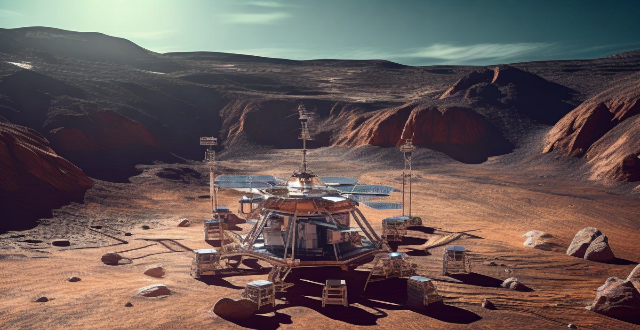
What is the role of artificial intelligence in modern rocket technology ?
The article discusses the pivotal role of Artificial Intelligence (AI) in revolutionizing various aspects of modern rocket technology. It explores how AI is transforming design and manufacturing processes, including computational fluid dynamics simulations, machine learning-driven material science, and automated manufacturing. The text also delves into AI's contributions to launch and orbital insertion, such as predictive maintenance, trajectory optimization, and real-time decision making. Furthermore, it highlights AI applications in on-orbit operations like autonomous navigation, swarm intelligence, and fault detection and recovery. The article concludes by discussing future implications of AI in deep space exploration, reusable rocketry, and collaborative robotics, emphasizing its potential to make space missions safer, more efficient, and cost-effective.
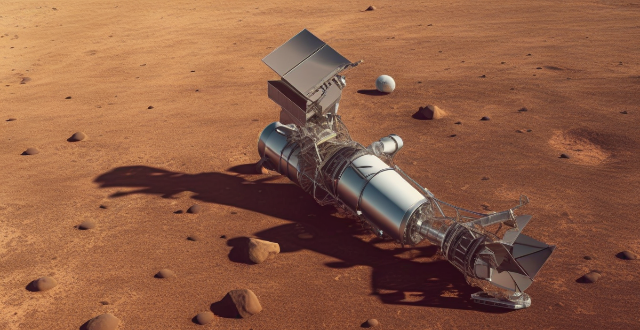
What companies are leading the way in commercial spaceflight ?
Commercial spaceflight is a growing industry with several key players, including SpaceX, Blue Origin, Virgin Galactic, Boeing, and Rocket Lab. Each company has its own mission and achievements, ranging from successful launches and landings of rockets to developing new spacecraft for future missions. These companies are leading the way in advancing humanity's exploration and utilization of space.

What is the average fuel consumption of a typical fuel vehicle ?
The average fuel consumption of a typical fuel vehicle can vary depending on several factors such as the type of vehicle, driving conditions, and maintenance. However, we can provide a general overview of the fuel consumption rates for different types of vehicles: - Small cars typically have better fuel efficiency than larger vehicles, with an average fuel consumption of around 6-8 liters per 100 kilometers (L/100km). - Midsize cars usually have slightly higher fuel consumption rates compared to small cars, with an average fuel consumption of around 8-10 L/100km. - Large cars generally have higher fuel consumption rates due to their larger size and weight, with an average fuel consumption of around 10-12 L/100km. - Small SUVs are becoming increasingly popular and offer relatively good fuel efficiency, with an average fuel consumption of around 9-11 L/100km. - Midsize SUVs are larger and heavier than small SUVs, resulting in higher fuel consumption rates, with an average fuel consumption of around 11-13 L/100km. - Large SUVs are the largest and heaviest vehicles in this category, leading to higher fuel consumption rates, with an average fuel consumption of around 13-15 L/100km. - Light duty pickups are designed for carrying light loads and offer reasonable fuel efficiency, with an average fuel consumption of around 12-14 L/100km. - Medium duty pickups are larger and more powerful than light duty pickups, resulting in higher fuel consumption rates, with an average fuel consumption of around 14-16 L/100km. - Heavy duty pickups are designed for heavy-duty tasks and have the highest fuel consumption rates among pickup trucks, with an average fuel consumption of around 16-18 L/100km. It's important to note that these figures are just estimates and actual fuel consumption can vary based on individual driving habits, vehicle condition, and other factors. Additionally, newer vehicles with advanced technology may have lower fuel consumption rates than older models.

What is the fuel efficiency of a hybrid car ?
Hybrid cars are more fuel-efficient than traditional gasoline-powered vehicles, with an average range of 40-50 mpg in city driving and 35-45 mpg on the highway. This increased efficiency offers benefits such as reduced fuel costs, lower emissions, longer engine life, and potential tax incentives. If you're looking for a more environmentally friendly and cost-effective way to get around, consider purchasing a hybrid car.
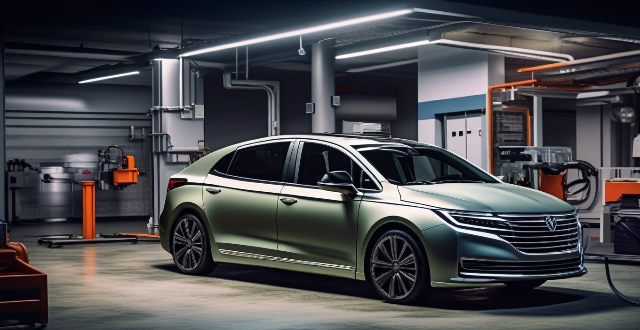
Are diesel hybrid cars more fuel-efficient than regular diesel cars ?
Diesel hybrid cars are more fuel-efficient than regular diesel cars due to the combination of a diesel engine and an electric motor, which optimizes fuel consumption and reduces emissions. They offer improved fuel efficiency, lower emissions, and better performance compared to traditional diesel vehicles.

How has the design of fuel vehicles evolved over the years ?
The evolution of fuel vehicle design has been marked by significant changes and innovations over the years. From horse-drawn carriages to modern electric cars, each new development has brought its own set of benefits and challenges. Key milestones in this evolution include the introduction of steam-powered vehicles during the Industrial Revolution, the invention of gasoline-powered vehicles in 1885, the rise of diesel engines in the early 20th century, and the recent resurgence of electric cars. Looking ahead, we can expect further advancements in autonomous driving technology, hydrogen fuel cells, and biofuels made from renewable sources.

What role do fossil fuel companies play in climate change denial ?
Fossil fuel companies contribute to climate change denial through financial interests, lobbying, and disseminating misinformation. They fund think tanks, engage in advertising campaigns, and influence politics to protect their profits and shape public opinion against strict environmental regulations. This resistance hinders effective action on climate change.

How does the performance of fuel vehicles differ from that of electric cars ?
The performance differences between fuel vehicles and electric cars are significant in terms of acceleration, refueling/charging, emissions, maintenance, and noise/vibration. Electric cars offer faster acceleration, lower maintenance needs, and cleaner operation but may require longer charging times and have limited charging infrastructure compared to the widespread availability of gas stations for fuel vehicles. The choice between the two often depends on personal preferences, lifestyle needs, and environmental considerations.

How does the maintenance cost of fuel vehicles compare to that of electric cars ?
The text discusses the comparison of maintenance costs between fuel vehicles and electric cars. It mentions that fuel vehicles typically require regular maintenance such as oil changes, air filter replacements, and spark plug checks. On the other hand, electric cars generally require less frequent maintenance than fuel vehicles. They do not have traditional engine oil, so oil changes are not necessary. However, they still require regular checks on the battery, brakes, and suspension system. Fuel vehicles often require more frequent maintenance due to their complex internal combustion engines and various fluids that need to be changed regularly. This includes oil changes every few thousand miles, as well as other routine services like brake pad replacements and tire rotations. Electric cars typically require less frequent maintenance because they have simpler drivetrains with fewer moving parts. Battery health is an important aspect of electric car maintenance, but it generally does not require as many check-ups as a traditional engine would. The cost of parts and labor for fuel vehicles can vary widely depending on the make and model of the vehicle, as well as the specific services required. However, fuel vehicles often have more expensive repairs due to their complexity and the number of moving parts involved. While electric cars may initially have higher upfront costs for batteries and specialized components, their maintenance costs tend to be lower in the long run because they require less frequent servicing and have fewer parts that need replacing.

How do hydrogen fuel cells work and are they a practical alternative energy source ?
Hydrogen fuel cells are devices that convert the chemical energy of hydrogen into electricity. They consist of an anode, cathode, electrolyte, and external circuit. The process involves splitting hydrogen into protons and electrons at the anode, moving protons through the electrolyte, moving electrons through the external circuit, combining protons and electrons with oxygen at the cathode to form water, and producing heat. Hydrogen fuel cells are renewable, have high energy density, zero emissions, and versatile applications. However, they face challenges such as high cost, limited infrastructure, and safety concerns.

How do scientists predict the impact of regular space travel on the environment ?
Scientists predict the environmental impact of regular space travel by considering various factors such as greenhouse gas emissions, waste generation, and resource consumption. They use computer models, simulations, and experimental data to estimate potential effects on Earth's ecosystems. Greenhouse Gas Emissions: Launching rockets requires a significant amount of fuel, leading to high CO2 emissions. Powering spacecraft and supporting infrastructure also contributes to increased energy consumption and CO2 emissions. Waste Generation: Astronauts generate solid waste during their missions, which needs proper disposal to avoid pollution. Spent rocket stages can cause debris in orbit or harm wildlife if they fall back to Earth uncontrolled. Resource Consumption: Regular space travel requires a substantial amount of resources, including water, food, and materials for building spacecraft and infrastructure. This leads to increased demand and potential stress on freshwater sources, soil degradation, loss of biodiversity, and environmental damage due to material extraction. Mitigating Strategies: To address the environmental concerns associated with regular space travel, scientists propose strategies like developing efficient propulsion systems, using renewable energy sources, implementing waste reduction techniques, and promoting sustainable resource management practices.

Can you explain the concept of a space launch system and its importance for future missions ?
A space launch system, or rocket, is a vehicle designed to carry payloads from Earth's surface into space. It consists of various stages containing propulsion systems that provide the necessary thrust to overcome Earth's gravity and achieve the desired orbit or trajectory. The importance of space launch systems for future missions cannot be overstated, as they are essential for exploring space, conducting scientific research, and enabling commercial activities beyond our planet. Key components of a space launch system include the propulsion system (engines and fuel tanks), payload (satellites, spacecraft, or other materials), stages (multiple stages with their own propulsion systems), and guidance and control systems (to ensure correct trajectory during launch and deployment). Space launch systems play a crucial role in advancing our understanding of the universe by enabling scientific research and exploration missions. They allow us to study celestial bodies such as planets, moons, asteroids, and comets, as well as investigate phenomena like black holes and dark matter. By launching telescopes, probes, and rovers into space, we can gather valuable data and insights that would otherwise be impossible to obtain from Earth's surface. As humanity looks towards returning humans to the Moon and eventually sending them to Mars, space launch systems become even more critical. They will be responsible for transporting astronauts, habitat modules, life support systems, and other essential equipment needed to establish a sustainable presence on these extraterrestrial bodies. Additionally, space launch systems will enable the transportation of resources mined from asteroids or other celestial bodies back to Earth or used in space-based manufacturing facilities. The growing commercial interest in space has led to numerous private companies developing their own space launch systems. These ventures aim to provide services such as satellite deployment, space tourism, and even asteroid mining. Space launch systems are essential for these businesses to thrive, as they provide the means to access space and deliver their products and services.

How do reusable rockets work and what benefits do they provide ?
Reusable rockets are designed to launch into space, return to Earth for refurbishment, and then be reused. Key steps include designing with heat-resistant materials, launching in multistage configurations, surviving re-entry, controlled descent and landing, followed by inspection, maintenance, and refueling for future missions. Benefits encompass cost reduction through economies of scale, environmental advantages such as reduced waste and carbon emissions, increased access to space, technological advancements, and enhanced national security and independence.

How do fuel vehicles contribute to air pollution ?
Fossil fuel vehicles release harmful gases and particulate matter, contributing to air pollution, climate change, and health issues. Measures to reduce their impact include improving fuel quality, enhancing vehicle efficiency, and promoting alternative transportation methods.
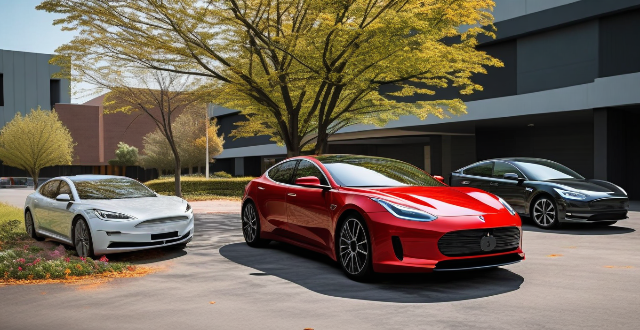
What are the advantages of fuel vehicles over electric cars ?
Fuel vehicles have several advantages over electric cars, including longer range, faster refueling time, more affordable upfront cost, more accessible charging infrastructure, and lower maintenance costs.
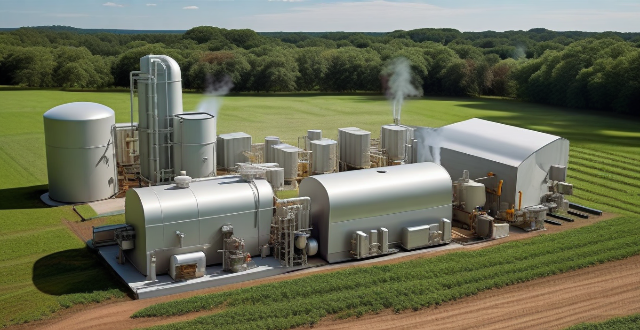
How do hydrogen fuel cells compare with conventional battery technologies ?
Hydrogen fuel cells and conventional battery technologies differ in efficiency, environmental impact, cost, and application. Hydrogen fuel cells have a higher energy density and quicker refueling time but currently rely on fossil fuels for hydrogen production, contributing to greenhouse gas emissions. Conventional batteries are more affordable and have lower upfront costs but require more frequent replacement. In terms of application, hydrogen fuel cells are suitable for transportation and remote power generation, while conventional batteries are widely used in portable devices and electric vehicles. Both technologies have their advantages and disadvantages, making them suitable for different applications.

What impact does energy-efficient transportation have on reducing fuel consumption ?
Energy-efficient transportation has a significant impact on reducing fuel consumption, which can lead to numerous benefits for the environment, economy, and society as a whole. These benefits include improved fuel efficiency, lower emissions, increased energy security, health benefits, and environmental conservation. By using vehicles and systems designed to minimize energy usage while maximizing performance, individuals and organizations can reduce their fuel consumption and save money on fuel costs over time. Additionally, reducing fuel consumption can lead to lower emissions of harmful pollutants and greenhouse gases, improving air quality and mitigating the effects of climate change. Investing in energy-efficient transportation can create new jobs and stimulate economic growth in industries related to clean energy and technology. Improving air quality through reduced emissions from energy-efficient transportation can have significant health benefits for people living in urban areas, reducing healthcare costs associated with treating respiratory problems and heart disease. Finally, reducing fuel consumption through energy-efficient transportation can help to conserve natural resources and protect ecosystems, preserving them for future generations.

What is the impact of fuel vehicles on global oil demand ?
The widespread use of fuel vehicles, especially those poweredThe widespread use of fuel vehicles, especially those powered engines, has significantly influenced global This increased consumption of petroleum-based fuels has led to economic implications such as price fluctuations and dependence on imports, as well as environmental challenges like greenhouse gas emissions and air pollution. Alternatives to fuel vehicles, including electric and hybrid vehicles, public transportation, and active mobility options, offer potential solutions to reduce our reliance on oil and mitigate these negative impacts.
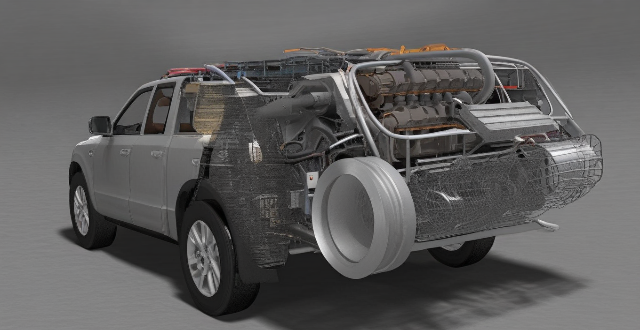
What are the main components of a fuel vehicle's engine ?
The main components of a fuel vehicle's engine include the cylinder block, pistons, connecting rods, crankshaft, camshaft, valves, head gasket, cylinder head, timing belt or chain, oil pump, spark plugs, intake and exhaust manifolds, cooling system, and lubrication system. These components work together to ensure efficient combustion, energy conversion, and overall engine operation.
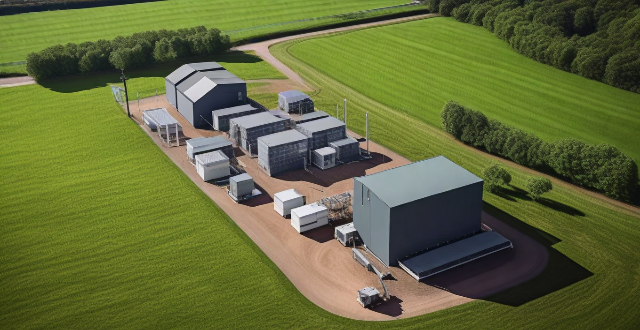
How efficient is a Compound Hybrid Electric Vehicle in terms of fuel consumption ?
Compound Hybrid Electric Vehicles (CHEVs) are efficient in terms of fuel consumption due to their dual power sources, regenerative braking, advanced energy management system, aerodynamic design, and weight reduction.

What is the role of private companies in space exploration ?
Private companies have become key players in space exploration, driving technological advancements, reducing costs, and fostering innovation. They are at the forefront of developing new technologies such as reusable rockets, advanced propulsion systems, and robotic explorers. Private companies often operate with leaner budgets and more streamlined processes than government agencies, allowing them to deliver space missions at a lower cost. This cost-effectiveness is crucial for making space exploration more accessible and sustainable over the long term. Private companies are known for taking risks and pursuing innovative ideas that might not be considered by government agencies due to budget constraints or strategic priorities. Their involvement has made space missions more accessible and sustainable while opening up new possibilities for exploring our solar system and beyond.

What role does public transportation play in reducing fuel consumption and emissions ?
Public transportation plays a pivotal role in reducing fuel consumption and emissions by offering efficient travel solutions, promoting environmentally friendly practices, and influencing urban planning. It allows for higher passenger capacity and optimized routes, reduces car dependence, adopts low-emission vehicles, and contributes to compact city design and land use efficiency. Supporting public transportation systems is crucial for achieving sustainability goals.

What role can hydrogen fuel cells play in transitioning to a renewable energy future ?
Hydrogen fuel cells are a promising technology for renewable energy transition, offering advantages such as zero emissions, high energy density, and renewable sources. They have applications in transportation, stationary power generation, and industrial applications. However, challenges such as cost, infrastructure, and safety concerns need to be addressed for widespread adoption.

What is the future of fuel vehicles in the face of increasing environmental concerns ?
The future of fuel vehicles is uncertain due to increasing environmental concerns. Fuel vehicles, particularly those that run on fossil fuels, are a significant source of air pollution and contribute to global warming, acid rain, and respiratory illnesses. The extraction and refining of fossil fuels can also cause significant environmental damage. Governments around the world are implementing stricter regulations on emissions from fuel vehicles, making it increasingly difficult for them to comply. Consumer preferences are also changing, with more people opting for eco-friendly alternatives such as electric cars and hybrids. Advances in technology are also posing a threat to fuel vehicles, with electric cars becoming increasingly affordable and efficient. There are several potential future scenarios for fuel vehicles, including continued use but with stricter regulations, a phase out in favor of eco-friendly alternatives, or a hybrid approach where both fuel vehicles and eco-friendly alternatives coexist. It is important for governments, consumers, and automakers to work together to find innovative solutions that balance the need for transportation with the imperative to protect our planet.